Question: Determine whether the following compounds are constitutional isomers: H H H H3C. CH3 D H CH3 H H3C CH3 H O The compounds are constitutional isomers. O The compounds are not constitutional isomers. They are just two different representations of the same compound. They are both 2,3-dimethylbutane.
Solved 1. Determine whether the following molecules are | Chegg.com
Nov 17, 2022constitutional. (structural) isomers. stereoisomers. The following flow chart can be used to identify the relationship of two compounds with respect to isomerization: Figure 8.1.1 8.1. 1: Different types of isomers. When using the flow chart, it is really important to remember that each decision on the flow chart is related to comparing two
![Are the following pairs Identical, [Image src='img135628070306041023566.jpg' alt='' caption=''], diastereomers, or constitutional isomers? Sort these pairs into the proper categories. | Homework.Study.com](https://homework.study.com/cimages/multimages/16/img135628070306041023566.jpg)
Source Image: homework.study.com
Download Image
And this is the simplest class of isomers which we call Constitutional (Structural) Isomers. So, we are right here: Stereoisomers. The next class of isomers the Stereoisomers. Two examples: Notice the difference with constitutional isomers – in stereoisomers, the atoms are connected the same, however, some of them have a different arrangement

Source Image: m.youtube.com
Download Image
SOLVED: Determine whether the following compounds are constitutional isomers: H3C CH3 H3C The compounds are constitutional isomers. The compounds are not constitutional isomers. They are just two different representations of the same 1) For each of the following pairs of compounds, determine whether they are identical, constitutional isomers, or stereoisomers. 2) For each compound below, identify all chirality (asymmetric) centers with an asterisk (*). O O O O OH OH OH OH Cl H 3C H 3C Cl Cl OH Cl O OH Br OH Br CH 3

Source Image: quizlet.com
Download Image
Determine Whether The Following Compounds Are Constitutional Isomers
1) For each of the following pairs of compounds, determine whether they are identical, constitutional isomers, or stereoisomers. 2) For each compound below, identify all chirality (asymmetric) centers with an asterisk (*). O O O O OH OH OH OH Cl H 3C H 3C Cl Cl OH Cl O OH Br OH Br CH 3 These compounds are known as isomers. Isomers are molecules with the same molecular formulas, but different arrangements of atoms. There are several different types of isomers which will be described and a flowchart (see figure below) can help you determine which type of isomers are present. Figure \(\PageIndex1\): Isomer flowchart.
CHM233 Chapter 5 ExamII Flashcards | Quizlet
Chemistry Steps LLC. Organic Chemistry Study Materials, Practice Problems, Summary Sheet Guides, Multiple-Choice Quizzes. It’s all here – Just keep browsing. Solved Determine whether the following pair of compounds are | Chegg.com
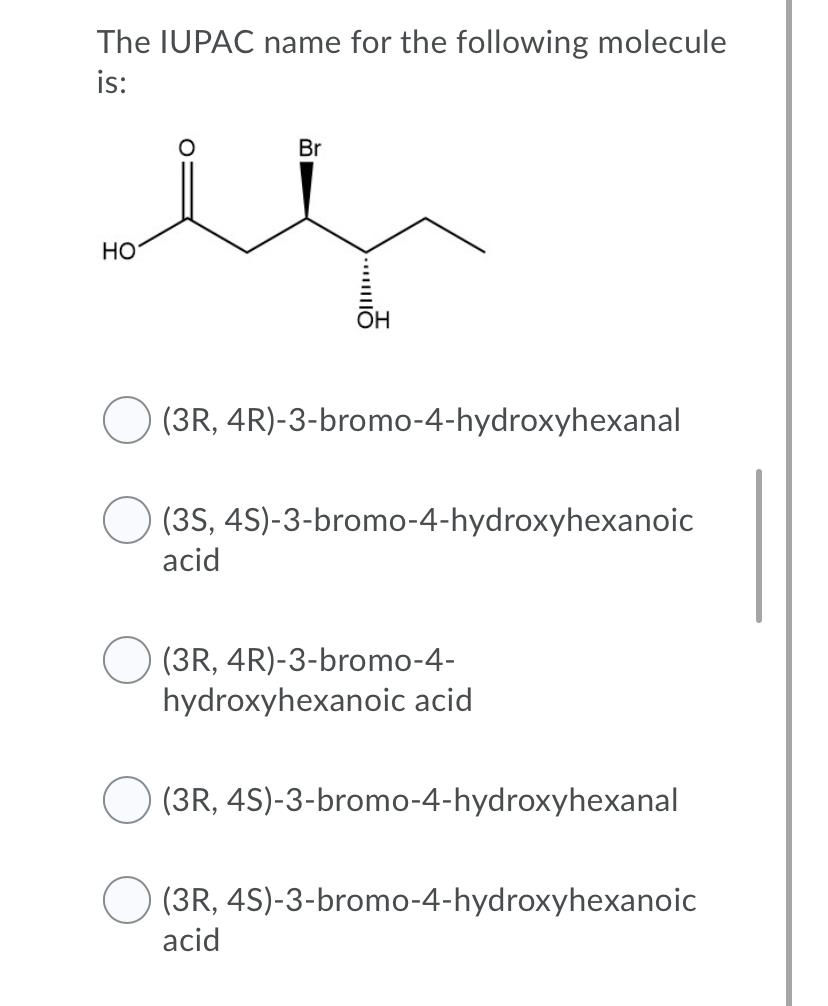
Source Image: chegg.com
Download Image
Solved Determine whether the following pair of compounds are | Chegg.com Chemistry Steps LLC. Organic Chemistry Study Materials, Practice Problems, Summary Sheet Guides, Multiple-Choice Quizzes. It’s all here – Just keep browsing.
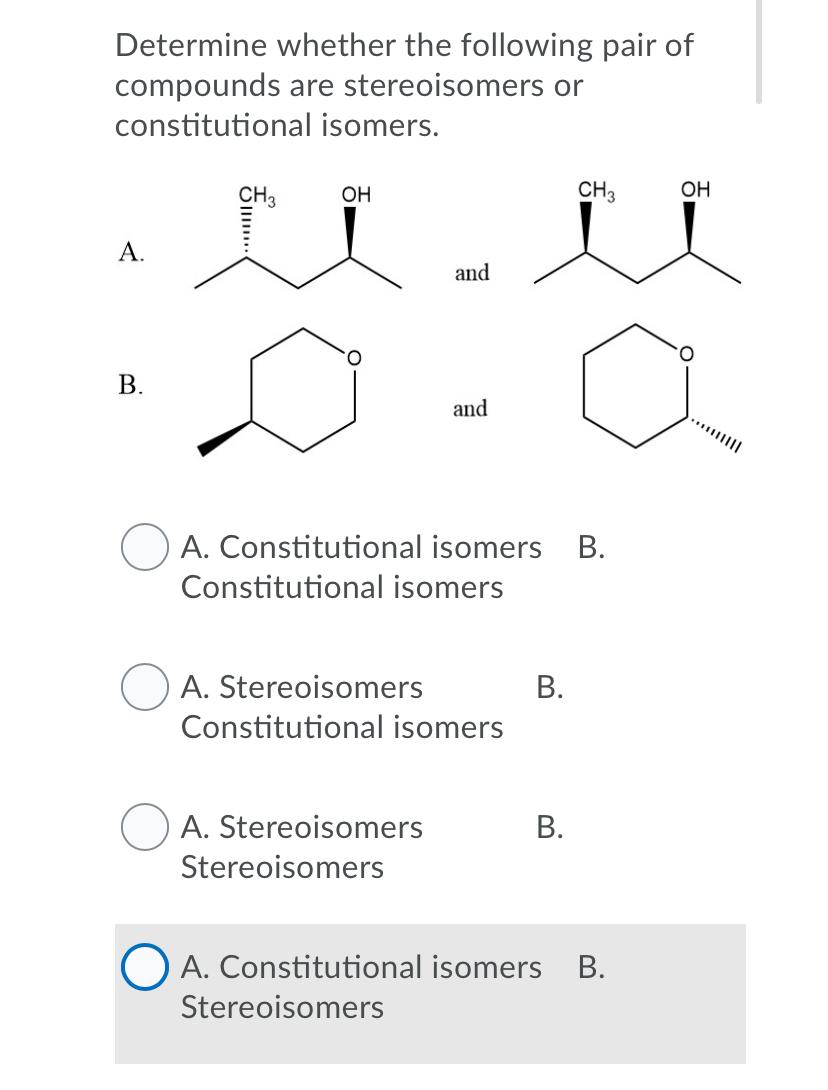
Source Image: chegg.com
Download Image
Solved 1. Determine whether the following molecules are | Chegg.com Question: Determine whether the following compounds are constitutional isomers: H H H H3C. CH3 D H CH3 H H3C CH3 H O The compounds are constitutional isomers. O The compounds are not constitutional isomers. They are just two different representations of the same compound. They are both 2,3-dimethylbutane.
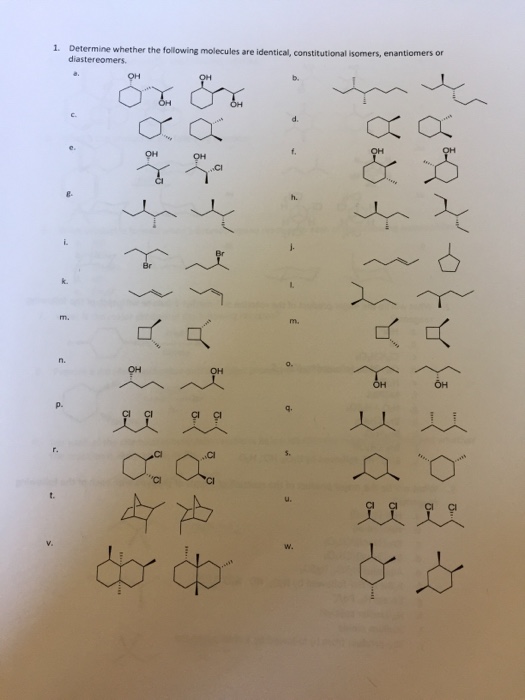
Source Image: chegg.com
Download Image
SOLVED: Determine whether the following compounds are constitutional isomers: H3C CH3 H3C The compounds are constitutional isomers. The compounds are not constitutional isomers. They are just two different representations of the same And this is the simplest class of isomers which we call Constitutional (Structural) Isomers. So, we are right here: Stereoisomers. The next class of isomers the Stereoisomers. Two examples: Notice the difference with constitutional isomers – in stereoisomers, the atoms are connected the same, however, some of them have a different arrangement
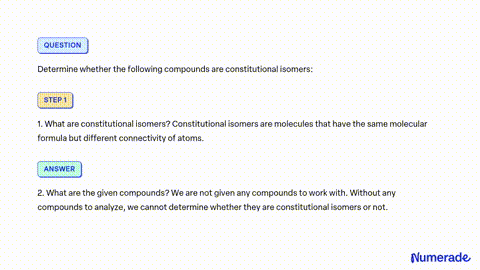
Source Image: numerade.com
Download Image
Constitutional Isomers Video Tutorial & Practice | Channels for Pearson+ 1. What is the relationship between the following pairs of compounds: identical, conformers, structural isomers, geometric isomers, or completely different compounds? Answer. 2.7: Isomerism Introduction is shared under a CC BY-NC-SA 4.0 license and was authored, remixed, and/or curated by LibreTexts.

Source Image: pearson.com
Download Image
Constitutional Isomers Practice Problems | Channels for Pearson+ 1) For each of the following pairs of compounds, determine whether they are identical, constitutional isomers, or stereoisomers. 2) For each compound below, identify all chirality (asymmetric) centers with an asterisk (*). O O O O OH OH OH OH Cl H 3C H 3C Cl Cl OH Cl O OH Br OH Br CH 3
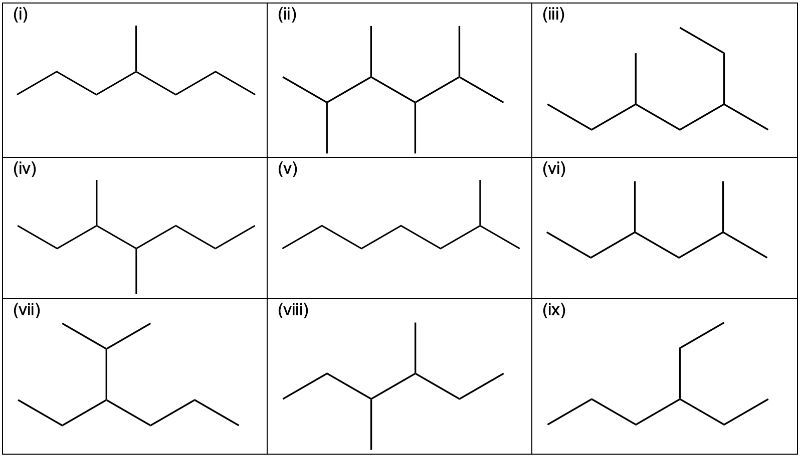
Source Image: pearson.com
Download Image
Solved Specify whether the following compounds are | Chegg.com These compounds are known as isomers. Isomers are molecules with the same molecular formulas, but different arrangements of atoms. There are several different types of isomers which will be described and a flowchart (see figure below) can help you determine which type of isomers are present. Figure \(\PageIndex1\): Isomer flowchart.
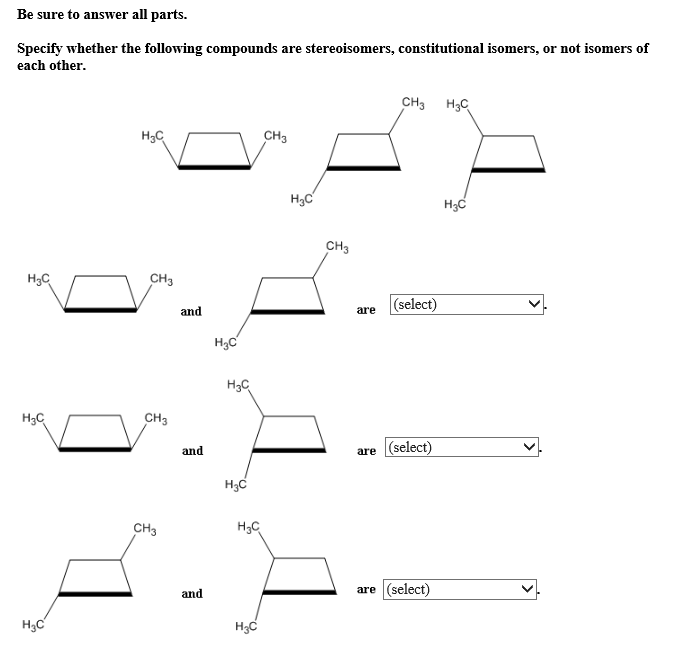
Source Image: chegg.com
Download Image
Solved Determine whether the following pair of compounds are | Chegg.com
Solved Specify whether the following compounds are | Chegg.com Nov 17, 2022constitutional. (structural) isomers. stereoisomers. The following flow chart can be used to identify the relationship of two compounds with respect to isomerization: Figure 8.1.1 8.1. 1: Different types of isomers. When using the flow chart, it is really important to remember that each decision on the flow chart is related to comparing two
SOLVED: Determine whether the following compounds are constitutional isomers: H3C CH3 H3C The compounds are constitutional isomers. The compounds are not constitutional isomers. They are just two different representations of the same Constitutional Isomers Practice Problems | Channels for Pearson+ 1. What is the relationship between the following pairs of compounds: identical, conformers, structural isomers, geometric isomers, or completely different compounds? Answer. 2.7: Isomerism Introduction is shared under a CC BY-NC-SA 4.0 license and was authored, remixed, and/or curated by LibreTexts.